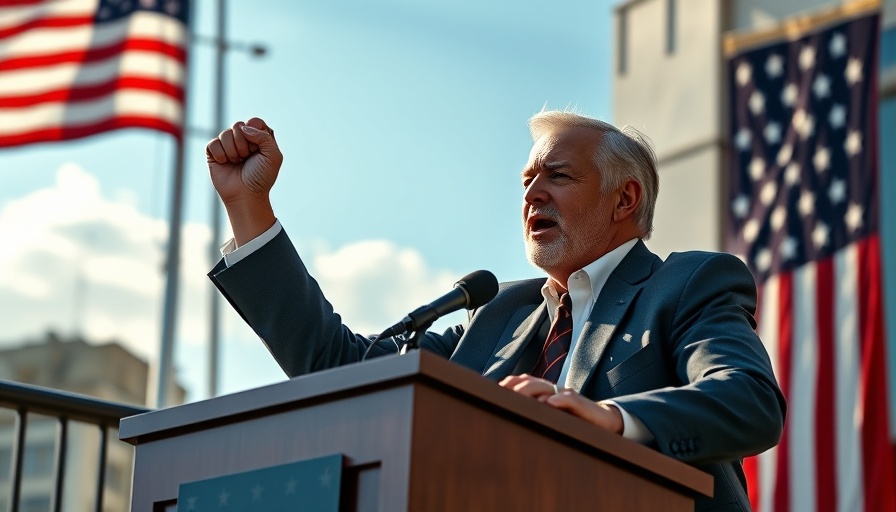
Trump's New Directives: What They Mean for Immigrants
As the political climate heats up in anticipation of former President Donald Trump's second term, his recent slew of executive orders has intensified discussions surrounding immigration and trade policies. Trump's directives aim to close the door further on immigration, continuing a narrative that has defined much of his previous tenure.
One key aspect of these orders is the renewed focus on restricting immigration through various means, including stringent evaluations for visa applicants and programs potentially targeting undocumented individuals. This has aroused concern among immigrant advocacy groups and supporters alike, questioning how these policies will impact the fabric of communities across America.
Public Reaction: Divided Opinions and Local Impact
The U.S. public is deeply divided on the topic of immigration, with Trump's supporters largely praising his approach as a necessary step for national security and economic stability. Conversely, critics consider these actions harmful, suggesting they could lead to increased discrimination and fear within immigrant communities. This schism is mirrored across various regions, notably in areas with high immigrant populations where local economies are often interconnected with immigrant labor.
This tension also extends to local election races, where candidates are leveraging these issues to galvanize support. Policies affecting immigration not only shape the policies at the federal level but also significantly impact local attitudes and sentiments, reinforcing existing socio-political divides.
Trade Wars: Threats and Economic Implications
Another significant point in Trump's recent orders revolves around trade policies, marked by an aggressive stance on tariffs and trade agreements. As Trump warns of a potential trade war, there’s growing concern among businesses that depend on imports from abroad. This could lead to higher prices for consumers and strain relationships with key trading partners.
Manufacturers, agricultural producers, and small business owners are particularly anxious, worrying that the looming threat of tariffs could disrupt their supply chains and affect their bottom lines. Many are left contemplating the necessity of diversifying their operations to ensure stability amidst uncertainty.
Future Predictions: What Lies Ahead?
As Trump navigates through his executive orders, experts predict that the fallout from these policies will garner widespread attention in upcoming elections. The implications for the economy, the immigrant community, and national unity itself will undoubtedly influence voter sentiments.
Elections, as they approach, will increasingly reflect the polarized views on immigration and trade. Expect candidates to double down on these critical issues, rallying voters around fears or hope surrounding America’s future direction. This moment can catalyze significant debates and redefine party dynamics across the board.
Conclusion: Your Role in Shaping the Debate
The political landscape is rapidly evolving, and as citizens, your voice matters. Engaging with local representatives on immigration policies and trade issues can spark change. Participation in discussions, whether in town halls or community forums, can help bridge the gaps in understanding and promote a shared vision for America’s future.
 Add Row
Add Row  Add
Add 




 Add Row
Add Row  Add
Add 








Write A Comment